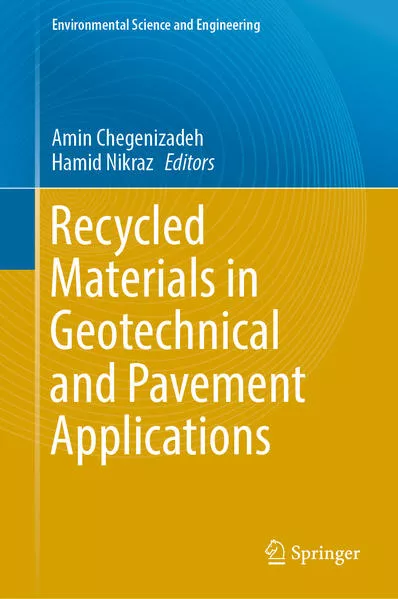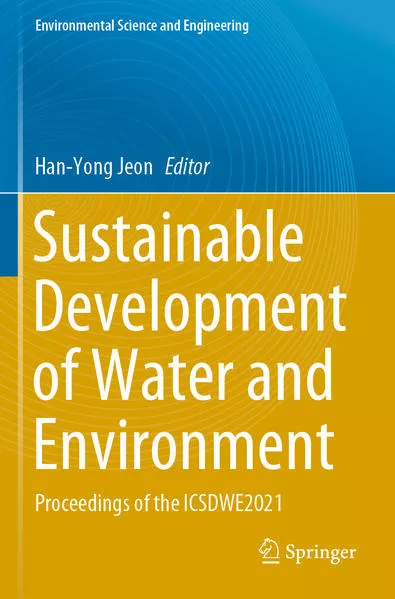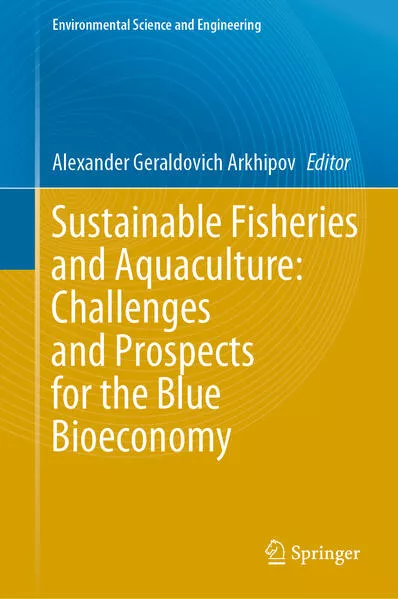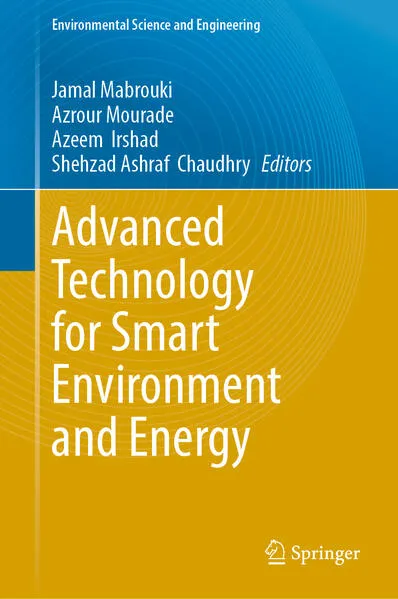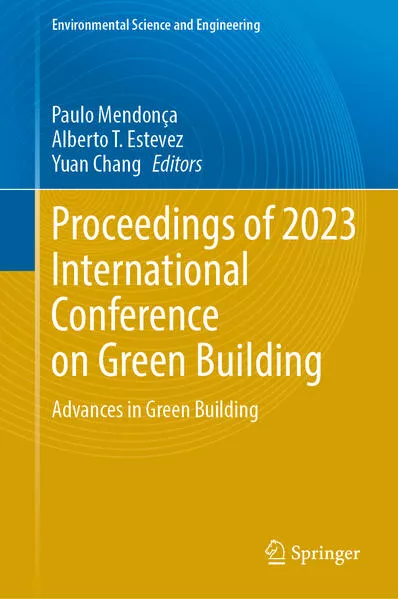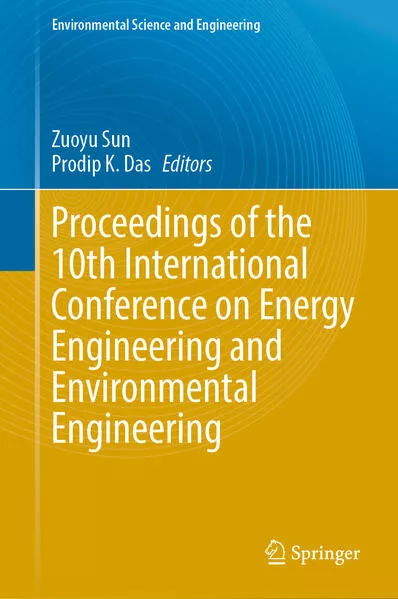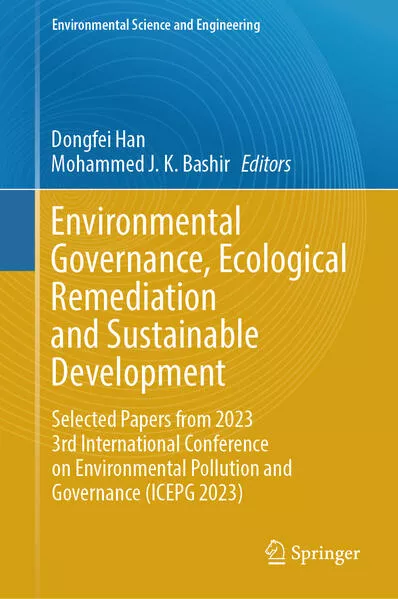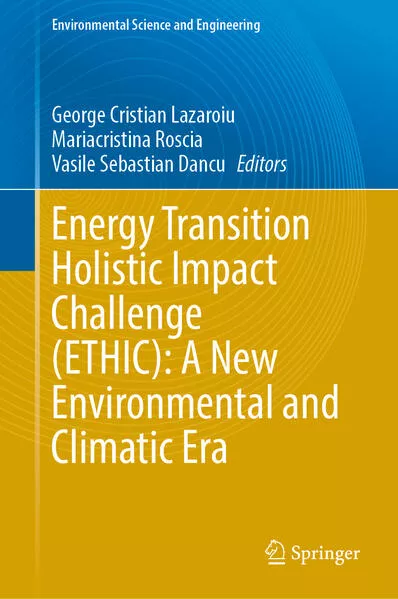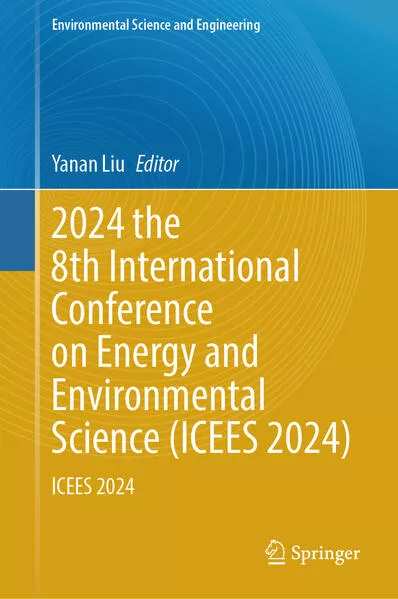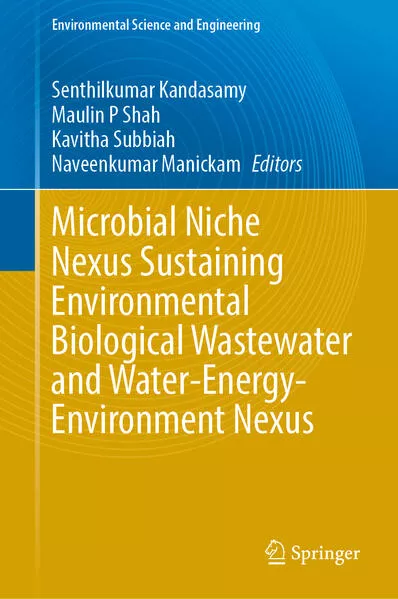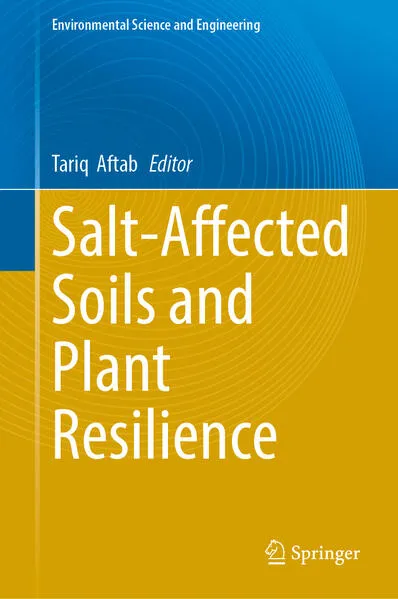Chronologie aller Bände (1 - 13)
Die Reihenfolge beginnt mit dem Buch "Recycled Materials in Geotechnical and Pavement Applications". Wer alle Bücher der Reihe nach lesen möchte, sollte mit diesem Band von Amin Chegenizadeh beginnen. Der zweite Teil der Reihe "Recycled Materials in Geotechnical and Pavement Applications" ist am 01.03.2022 erschienen. Mit insgesamt 13 Bänden wurde die Reihe über einen Zeitraum von ungefähr 4 Jahren fortgesetzt. Der neueste Band trägt den Titel "Salt-Affected Soils and Plant Resilience".
- Anzahl der Bewertungen für die gesamte Reihe: 2
- Ø Bewertung der Reihe: 1
- Start der Reihe: 28.02.2022
- Neueste Folge: 08.12.2025
Diese Reihenfolge enthält 13 unterschiedliche Autoren.
- Autor: Chegenizadeh, Amin
- Anzahl Bewertungen: 0
- Ø Bewertung:
- Medium: Buch
- Veröffentlicht: 01.03.2022
- Genre: Politik
Recycled Materials in Geotechnical and Pavement Applications
This book considers the application of recycled materials both in pavement and geotechnical engineering. Currently, Australia has faced the fundamental concern of recycling waste plastic. On 1 January 2018, China enforced a prohibition on the importation of waste plastic. China's ban is followed by other countries like India, Indonesia, and Malaysia. The ban caused many corporations to abandon waste collection agreements, and the stockpiling of waste, as there is nowhere to safely deposit this waste. This issue seems, to a great extent, to have placed Australia's recycling industry in a crisis. As a result, local councils will have to find strategic ways of recycling accumulated waste that will become a more significant issue in the coming years. In Australia, apart from economic growth, the road pavement has weakened rapidly as the current pavement unable to withstand this urgent traffic load demand. The adding of polymers to the mixtures improves the stiffness, rutting resistance,and fatigue cracking [1]. However, the application of virgin polymer is costly. Thus, using waste polymer such as waste plastic polymer is an inexpensive substitute. The potential for recycled plastic to improve the performance properties of asphalt mixtures has been demonstrated in many countries the UK, Canada, The Netherlands, and India [2]. Similarly, another application of recycled materials can be in geotechnical infrastructure. This book considers the application of recycled materials both in pavement and geotechnical engineering.
References
[1] Airey, G.D., Singleton, T.M., & Collop, A.C.(2002). Properties of polymer modified bitumen after rubber- bitumen interaction. Journal of Materials in Civil Engineering .14(4), 344- 354.
[2] K. O'Farrell. Australian Plastics Recycling Survey- National Report.
Australian Government, Department of Environment and Energy, Australia. Project reference,2018 A21502.
- Autor: Jeon, Han-Yong
- Anzahl Bewertungen: 0
- Ø Bewertung:
- Medium: Buch
- Veröffentlicht: 12.08.2022
- Genre: Politik
Sustainable Development of Water and Environment
This book addresses the improvement and dissemination of knowledge on methods, policies and technologies for increasing the sustainability of development by de-coupling growth from natural resources and replacing them with knowledge-based economy, taking into account its economic, environmental and social pillars, as well as methods for assessing and measuring sustainability of development, regarding water and environment. This book gathers scholar and experts in related fields. All attendees from a vast range of companies, universities and government institutions acquire advanced technical knowledge and are introduced to new fields through discussions that focus on their own specialties as well as a variety of interdisciplinary areas. The authors hope most of scholars can find what they really need in this book.
- Autor: Arkhipov, Alexander Geraldovich
- Anzahl Bewertungen: 1
- Ø Bewertung: 1.0
- Medium: Buch
- Veröffentlicht: 23.09.2022
- Genre: Politik
Sustainable Fisheries and Aquaculture: Challenges and Prospects for the Blue Bioeconomy
The book presents expert assessments of modern opportunities for fisheries and aquaculture in terms of economic efficiency, the state of fishery reservoirs, and the state of ichthyocenoses. The purpose of this book is to provide interested parties (government bodies, representatives of business, science and civil society) with information about modern solutions in the field of aquatic biological resources management, the state of aquatic ecosystems and fish stocks, and modern and promising technologies in aquaculture and fisheries. The book contains an assessment of the state and recommendations for the restoration of natural aquatic ecosystems, an analysis of the state of fisheries and aquaculture in inland waters, taking into account regional characteristics, the development of a methodology for assessing freshwater fish stocks, information on advanced technologies in cage aquaculture in reservoirs and lakes and in circulation systems, data on opportunities for capacity building in small-scale fisheries, and the prospects for establishing a data and information management system for fisheries and aquaculture.
- Autor: Mabrouki, Jamal
- Anzahl Bewertungen: 0
- Ø Bewertung:
- Medium: Buch
- Veröffentlicht: 26.03.2023
- Genre: Sonstiges
Advanced Technology for Smart Environment and Energy
This book presents smart energy management in the context of energy transition. It presents the motivation, impacts and challenges related to this hot topic. Then, it focuses on the use of techniques and tools based on artificial intelligence (AI) to solve the challenges related to this problem. A global diagram presenting the general principle of these techniques is presented. Then, these techniques are compared according to a set of criteria in order to show their advantages and disadvantages with respect to the conditions and constraints of intelligent energy management applications in the context of energy transition. Several examples are used throughout the white paper to illustrate the concepts and methods presented.
An intelligent electrical network (smart grid—SG) includes heterogeneous and distributed electricity production, transmission, distribution and consumption components. It is the next generation of electricity network able to manage electricity demand (consumption/production/distribution) in a sustainable, reliable and economical way taking into account the penetration of renewable energies (solar, wind, etc.). Therefore, a (SG) smart grid also includes an intelligent layer that analyzes the data provided by consumers as well as that collected from the production side in order to optimize consumption and production according to weather conditions, the profile and habits of the consumer. In addition, this system can improve the use of green energy through renewable energy penetration and demand response.
- Autor: Mendonça, Paulo
- Anzahl Bewertungen: 0
- Ø Bewertung:
- Medium: Buch
- Veröffentlicht: 20.11.2023
- Genre: Politik
Proceedings of 2023 International Conference on Green Building
This book showcases the latest trends and innovations in the field of Green Building, covering topics from research and design to innovative practices and challenges. It is a compilation of communication papers presented at the 2023 International Conference on Green Building (ICoGB 2023), a leading annual event that focuses on sharing and discussing developments in this field. Green Building principles constitute key aspects to achieve the sustainable development goals. This conference is dedicated to providing a platform for researchers, scientists, engineers, and scholars to exchange and share their experiences, new ideas, and research and to discuss the challenges encountered as well as the solutions adopted.
ICoGB 2023 was organized in Malmo, Sweden, during May 19–21, 2023. The target audience are all professionals in the building design and construction fields, such as architects, engineers, scholars, researchers, builders, promoters, among others.
- Autor: Sun, Zuoyu
- Anzahl Bewertungen: 0
- Ø Bewertung:
- Medium: Buch
- Veröffentlicht: 31.01.2024
- Genre: Politik
Proceedings of the 10th International Conference on Energy Engineering and Environmental Engineering
This book contains the proceedings of the 10th International Conference on Energy Engineering and Environmental Engineering (ICEEEE2023) that was held on August 6-8 2023 in Singapore. ICEEEE2023 is organized by Beijing Jiaotong University and Newcastle University. This book provides an international forum for discussion and communication of energy and environmental engineering.
It is expected to report the latest technological developments in the fields developed by academic researchers and industrial practitioners, with a focus on renewable energy technologies and systems, energy efficiency and conservation, environmental pollution and control, sustainable development, and green cities. The contents of this proceedings will be useful to researchers, professionals, and policymakers alike.
- Autor: Han, Dongfei
- Anzahl Bewertungen: 0
- Ø Bewertung:
- Medium: NonBook
- Veröffentlicht: 04.06.2024
- Genre: Politik
Environmental Governance, Ecological Remediation and Sustainable Development
The book focuses on environmental monitoring, pollution discharge control and management, environmental pollution governance, ecological remediation technology, and environmental sustainability. With the rapid growth of global population and the development of industry and cities, environmental pollution problems are becoming increasingly serious, affecting people's lives and social development. In order to protect the environment and achieve sustainable ecological development, we need to maintain research on environmental pollution governance and ecological remediation. This book aims to promote scientific information interchange between scholars from the top universities, research centers, and high-tech enterprises working all around the world and is a valuable resource for those in both academia and industry.
- Autor: Lazaroiu, George Cristian
- Anzahl Bewertungen: 0
- Ø Bewertung:
- Medium: Buch
- Veröffentlicht: 04.06.2024
- Genre: Politik
Energy Transition Holistic Impact Challenge (ETHIC): A New Environmental and Climatic Era
This book states that the new environmental challenge will also have to be faced ethically, science can provide the tools, but people will have to be sensitized so that they make their own environmental ethics.
The challenge of the new era is: the environment and therefore the climate, as it does not start outside of us, but as a constituent element of our life and therefore lived ethically.
The new vision proposed in this book is to push technology together with the human being, in assuming environmentally ethical behaviors: this is the greatest collective action of humanity.
Sustainable development has allowed an integrated key to the social, economic, and environmental dimensions.
Through ethics, sustainability can be combined not only by referring to the problem of pollution and the exploitation of natural resources, but it creates a new global era that includes all dimensions of people's lives and of society.
The shared and structured environmental ethics allow an approach that is no longer short-term but provide the collective tools to look far in time.
With this book, we want to lay the instrumental, technical, social, and legislative foundations, to provide a new methodology for the care of the environment, as up to now, there has been much discussion, but little achieved in a truly ethical way.
- Autor: Liu, Yanan
- Anzahl Bewertungen: 0
- Ø Bewertung:
- Medium: NonBook
- Veröffentlicht: 24.08.2024
- Genre: Politik
2024 the 8th International Conference on Energy and Environmental Science (ICEES 2024)
This book dedicates to publish exceptionally important and high-quality, agenda-setting research so as to tackle the key global and societal challenges of ensuring the provision of energy and protecting our environment for the future. The book appeals to chemical scientists, chemical and process engineers, energy researchers, bio-scientists and environmental scientists from across academia, industry and government. The scope is intentionally broad, and the book recognizes the complexity of issues and challenges relating to energy conversion and storage, alternative fuel technologies and environmental science. The main topics of this book include but not limit to (1) alternative energy and the environment, (2) assessments of the condition of ecosystems and environmental quality, (3) behavior of and impacts of pollutants in atmosphere, soil and water, (4) management of ecosystems, environment and water resources, (5) modeling and regional environmental assessments (includes global change), (6) treatment/restoration of ecosystems, environment and water resources, (7) sustainable/renewable energy and(8) energy and built environment.
All scales of studies and analysis, from impactful fundamental advances, to interdisciplinary research across the (bio)chemical, (bio/geo)physical sciences and chemical engineering disciplines are welcomed. So, this book is linked to the energy-environment nexus and is of significant general interest to our community-spanning readership.
- Autor: Kandasamy, Senthilkumar
- Anzahl Bewertungen: 0
- Ø Bewertung:
- Medium: Buch
- Veröffentlicht: 01.10.2024
- Genre: Sonstiges
Microbial Niche Nexus Sustaining Environmental Biological Wastewater and Water-Energy-Environment Nexus
In most of the industries, industrial effluent treatment plants are playing vital roles to ensure the efficient management of industrial effluent for supporting sustainable development of our society. Due to the technological development, new concepts about future wastewater management are being incorporated by process industries in the whole world, including recyclable resources and energy/nutrient recovery from industrial effluent, etc. However, conventional treatment methods including biotechnological methods used in treatment plants are facing a lot of difficulties due to the strict discharging norms and coming out of new-fangled pollutants. Recently, a novel concept microbial niche nexus sustaining biological wastewater treatment was introduced, which can accomplish the significant removal of toxic emerging pollutants by different microbial communities, with the concern of other components like integrated and healthy ecosystem. The book focuses on research related to future potential and progress of microbial niche-based environmental biotechnology such as microbial enrichment, microbial function, system design, new technological developments and its applications. Besides, the book reviews important interconnections between water, energy, and the environment as security in water and energy, and the environment is associated with human beings, natural resources, economic, and environmental sustainability. In addition, the book describes innovative green technologies with the aim of enhancing the present state-of-the-art technologies in the various fields like water, energy, the environment, and the related potential fields of industrial wastewater treatment.
- Autor: Nahar, Kamrun
- Anzahl Bewertungen: 0
- Ø Bewertung:
- Medium: Buch
- Veröffentlicht: 02.02.2025
- Genre: Politik
Jatropha curcas L: A Potential 2G Energy Crop to Produce Biofuel in Bangladesh
This book addresses the opportunity to cultivate a multipurpose, drought resistant and nonfood bioenergy crop, Jatropha curcas L. in Bangladesh. As a renewable resource and a sustainable substitute for fossil fuel, Jatropha curcas produces seeds containing inedible oil, which can supply fuel and meet the national energy demands of Bangladesh. The plant does not need arable lands and does not compete with food, water and nutrients. This book also highlights the land use patterns and possible cultivation areas of Bangladesh. It is based on research of the cultivation technology, ecological and agronomical aspects, biotechnological methodologies, harvesting and crop yield including fuel and byproduct formation. It also highlights the different uses and socioeconomic benefits of the plant and production costs and briefly describes the procedure for the production of biodiesel and other useful byproducts. The comparison of biodiesel from Jatropha curcas with conventional fossil fuel is also discussed as well as its ability to sequester carbon from the environment to cope up with climate change, adaptation as well as mitigation
- Autor: Dong, Lili
- Anzahl Bewertungen: 0
- Ø Bewertung:
- Medium: Buch
- Veröffentlicht: 04.10.2025
- Genre: Sonstiges
9th International Conference on Energy and Environmental Science
This proceedings book dedicates to publish exceptionally important and high-quality, agenda-setting research so as to tackle the key global and societal challenges of ensuring the provision of energy and protecting our environment for the future. The book appeals to chemical scientists, chemical and process engineers, energy researchers, bio-scientists, and environmental scientists from across academia, industry, and government. The scope is intentionally broad, and the book recognizes the complexity of issues and challenges relating to energy conversion and storage, alternative fuel technologies and environmental science. The main topics of this book include but not limit to (1) environmental pollution analysis and control; (2) carbon emissions, carbon sequestration, and carbon reduction; (3) low carbon urban planning, landscape design, and the related environmental effects; (4) green building design, building energy conservation, and building environmental management; (5) clean energy technology and application; (6) grid-connected renewable energy systems and sustainable energy management; (7) energy saving and heat transfer technology.
All scales of studies and analysis, from impactful fundamental advances, to interdisciplinary research across the (bio)chemical, (bio/geo)physical sciences, and chemical engineering disciplines are welcomed. So, this book is linked to the energy-environment nexus and is of significant general interest to our community-spanning readership.
- Autor: Aftab, Tariq
- Anzahl Bewertungen: 0
- Ø Bewertung:
- Medium: Buch
- Veröffentlicht: 08.12.2025
- Genre: Sonstiges
Salt-Affected Soils and Plant Resilience
This book explores the complex challenges posed by soil salinity and the remarkable resilience mechanisms in plants. This book covers the origins, distribution, and global impact of soil salinity, delving into both natural and anthropogenic causes. It examines the physiological, biochemical, genetic, and molecular responses of plants to salt stress, highlighting key mechanisms like ion homeostasis, osmotic adjustment, and oxidative stress management. This book also presents innovative agronomic practices, biotechnological approaches, and effective strategies for managing saline soils to enhance plant productivity and sustainability. Featuring case studies and future research directions, this book is an essential resource for researchers, agronomists, soil scientists, and policymakers committed to addressing soil salinity challenges and promoting agricultural resilience.
